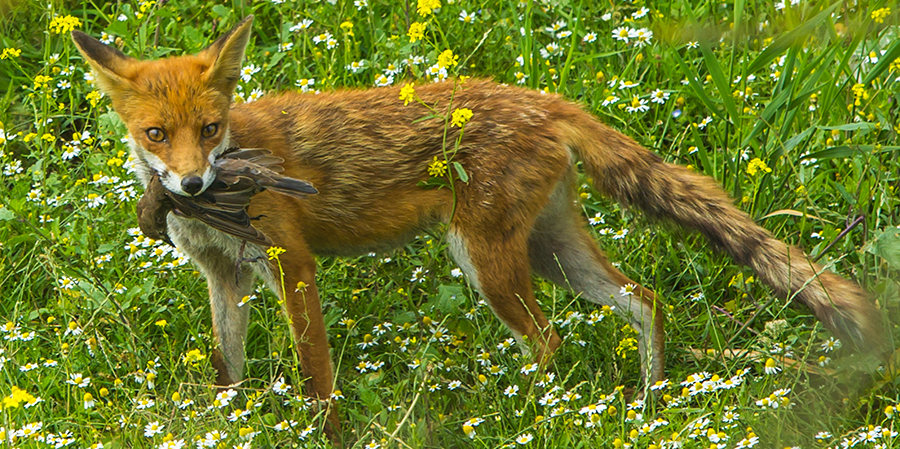
03 Aug 2020 European bird declines: Do we need to rethink approaches to predator management?
Predator control can play a key role in halting declines and recovering ground-nesting bird in Europe, a recent study says. Many European bird populations are declining, driven by the intensification of agriculture, habitat loss and fragmentation, and climate change.
For many species, the influence of generalist predators like foxes and crows can play a significant role, especially as many habitats have deteriorated. Many European bird populations are declining, driven by the intensification of agriculture, habitat loss and fragmentation, and climate change. For many species, the influence of generalist predators like foxes and crows can play a significant role, especially as many habitats have deteriorated.
A recent scientific study from July 2020 showed that 74% of all ground‐nesting bird species are declining in Europe, which is partly due to an increased abundance of generalist predators. The study suggest that in some areas or circumstances habitat management alone is not sufficient to stop negative population trends and suggest that lethal removal of foxes and corvids can take away the pressure for local ground-nesting birds.
The lead author, Dr. Barry McMahon, Associate Professor at the School of Agriculture and Food Science in University College Dublin stated: “This study indicates that generalist predators cause declines in European bird populations, although predation is not the only issue we need to tackle. Predator management is a controversial topic, but if we value our ground-nesting birds, we need to reconsider their management and promote accurate data collection to better inform management efforts”.
Game management typically involves a combination of habitat and predator management and this produces results for ground nesting birds. For FACE, the results of this study are not surprising and show the importance of hunters as key stakeholders in helping the recovery of ground nesting birds.
Hunters are already actively engaged in predator management throughout Europe and willing to work closer with decision-makers to coordinate efforts to prevent further widespread declines in ground‐nesting birds.

